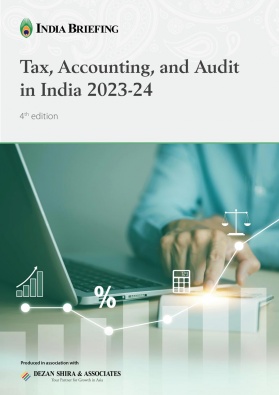India’s OIDAR Taxation Shift: Key Changes Effective October 1
India’s recent tax policy change, effective from October 1, 2023, ends the Goods and Services Tax (GST) exemption for overseas online information and database access retrieval (OIDAR) providers offering services for non-business purposes. Tech giants like Facebook and Google will now face up to 18 percent integrated GST (IGST) on their services, irrespective of personal or business use. This change broadens the tax scope, increases compliance challenges, and mandates database maintenance for service providers.
For smaller enterprises, especially in edtech and subscriptions-based, staying abreast of these changes, ensuring compliance, and adapting their operations to align with new tax regulations will be crucial. For more information and business support in India, you may contact us by emailing at india@dezshira.com.
In a significant move, India has decided to end the Goods and Services Tax (GST) exemption enjoyed by overseas online information and database access retrieval service (OIDAR) providers offering services for non-business purposes. This change, which comes into effect from October 1, 2023, means that companies such as Facebook, Google, and various edtech platforms will face an integrated GST (IGST) of up to 18 percent on their services provided to both individuals and the government.
Until this recent change, OIDAR services provided by overseas companies to the Indian central government, state governments, government authorities, or individuals for non-business purposes were exempt from taxation. However, with this amendment, OIDAR services will now be subject to taxation, regardless of whether they are used for personal or business purposes.
What are OIDAR services?
OIDAR services, defined as services delivered through IT over the internet, involve “minimal human intervention” and include a wide range of offerings such as advertising, cloud services, sale of e-books, movies, music, software, digital content supply, data storage, and online gaming. These services, especially popular among global tech companies, are no longer exempt from IGST. However, in the Finance Act 2023, the central government had widened the tax scope of OIDAR services and changed the definition of OIDAR services dropping the reference to “involving minimal human intervention” in service delivery.
The Finance Act also changed the definition of ‘non-taxable online recipient’ bringing even non-registered recipients in section 16 of the IGST Act, putting the onus on the services providers to collect tax.
How will the integrated GST liability impact OIDAR service providers?
- Increased taxation: OIDAR services provided to individuals and government entities, regardless of whether they are used for personal or business purposes, will now be taxable, imposing a tax burden of up to 18 percent.
- Compliance challenges: While large companies might be prepared for the compliance burden, smaller enterprises, especially in the edtech and subscription-based service sectors, might face challenges due to heightened compliance requirements.
- Database maintenance: Service providers are now required to maintain a database of users, adding an additional layer of administrative responsibility.
- Broader tax scope: The removal of the term ‘involving minimal human intervention’ in the service delivery definition expands the scope of taxation, potentially covering services with some human intervention.
About Us
India Briefing is produced by Dezan Shira & Associates. The firm assists foreign investors throughout Asia from offices across the world, including in Delhi and Mumbai. Readers may write to india@dezshira.com for more support on doing business in India.
We also maintain offices or have alliance partners assisting foreign investors in Indonesia, Singapore, Vietnam, Philippines, Malaysia, Thailand, Italy, Germany, and the United States, in addition to practices in Bangladesh and Russia.
- Previous Article Digital Services in India: Tax Applicability and Compliance
- Next Article Important Financial Changes in India Effective October 2023: Impact on Businesses








